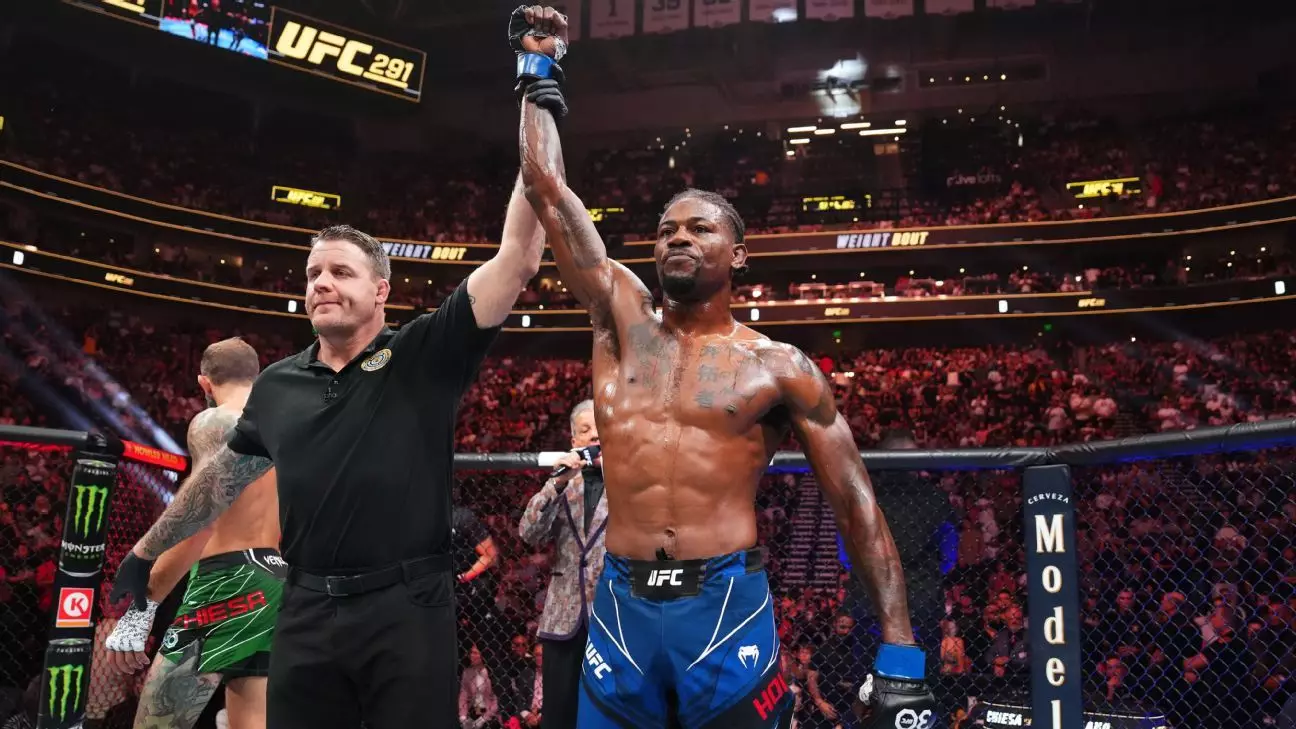In the highly competitive realm of Mixed Martial Arts (MMA), aspirations typically revolve around securing championship belts and achieving recognition. However, Kevin Holland is carving a different path. As he prepares to step into the Octagon for his 24th fight against Reinier de Ridder at UFC 311, Holland’s focus is not on championship gold but rather on resilience, longevity, and setting a record for the most fights in UFC history. This perspective highlights a unique approach to success within an industry that often glorifies title holders.
Since joining the UFC in 2018, Holland has exhibited a relentless fighting schedule, often competing three to five times a year and achieving a remarkable 5-0 record in 2020. This high activity level makes him a standout competitor, yet it is his priorities that truly distinguish him. In a sport where many fighters chase world championships as a marker of accomplishment, Holland candidly admits that his true motivation lies in financial stability, rather than accolades.
He believes that amassing fights rather than titles provides a more secure financial future, as echoed in his statement: “I fight for my financial lifestyle.” This pragmatic mindset aligns well with his objectives and offers a more sustainable model for fighters concerned about their livelihoods and long-term careers.
Holland has his sights set on surpassing Jim Miller’s impressive record of 45 UFC fights. At 32, he recognizes that by maintaining his current pace, he can feasibly challenge this benchmark by the time he reaches 37. The drive to achieve a record is not merely an ego boost; it embodies Holland’s commitment to continuous competition and showcases his dedication toward establishing a legacy through sheer numbers, a rarity in a sport often dominated by narratives of glory and punishment.
Yet, it is important to consider how his aspirations reflect a cultural shift among fighters. Holland’s determination to disassociate from title-related politics illustrates an emerging trend where athletes recognize the constraints that championship pursuits may impose on their careers. He has shown a clear understanding of the financial implications of these pursuits, expressing concern over both earnings and the frequency of fights, indicating that the championship spotlight may restrict his ability to generate income.
The Impact of Fight Frequency on Career Longevity
Prioritizing a steady stream of fights over the uncertainties associated with title pursuits could serve as a significant blueprint for younger fighters entering the sport. The traditional goal of chasing belts could potentially deter career longevity if it results in injuries or decreases in fight frequency. Holland understands that the path to financial comfort is not punctuated with one grand moment but is built through consistent efforts and engagement within the Octagon.
As he prepares for what seems like another routine battle, Holland’s focus on securing a quick turnaround for upcoming matches illustrates his ambition. He recognizes that staying active is paramount to achieving his goals, illuminating the significance of perseverance and adaptability in the pursuit of success.
Kevin Holland stands as a beacon for a new philosophy within MMA, one that prioritizes financial independence and accolades of consistency over conventional achievements such as championship titles. His goal to command record-setting fight numbers reflects a transformative mindset in a sport known for its tumultuous politics. As he steps into UFC 311, fans and fellow fighters alike will continue to monitor his path — a testament to the idea that success can be redefined outside the traditional boundaries.

